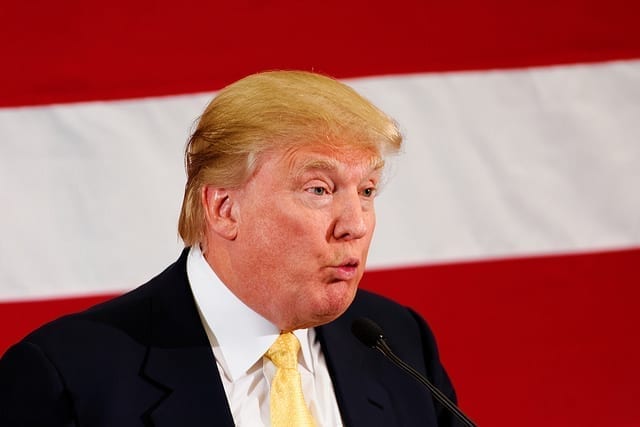President Trump appears ready to finally give ground on border wall funding. However, some Republican insiders anticipate another flip-flop while House progressives gear up to toe the line with further demands.
With the government again at risk of shutting down, President Trump appears willing to compromise on his long-standing demand for a great wall along the U.S.-Mexico border.
According to the New York Times, legislators in the House and Senate are nearing an agreement. Their proposal would offer the White House between $1.3 and $2 billion in border security funding.
That funding—considerably short of the $5.7 billion Trump wants—could include money for physical barriers, such as ‘bollard fencing.’
And the Times says politicians may close a deal as early as Monday.
“We’re 95 to 98 percent done,” said Sen. Patrick J. Leahy (D-VT), a ranking member on the Senate Appropriations Committee.
Trump’s signaled that he may accept a border security stimulus of $2 billion. However, Democrats aren’t willing to earmark anywhere near the full amount to the president’s fantasy fence.
“Throughout the talks, Democrats have insisted that a border security compromise not be overly reliant on physical barriers,” said Evan Hollander, communications director for the House Appropriations Committee. “We will not agree to $2 billion in funding for barriers.”
Legislators are trying to avoid a repeat of President Trump’s 35-day partial government shutdown, the longest in U.S. history. Condemning caravans and positing immigrants as an existential threat to the nation, Trump refused to accept deal that didn’t include billions in border wall funding.
Eventually, the president relented without concession.
However, he may not be willing to give up just yet. POLITICO reports that White House officials and Trump advisers claim he’s gearing up to redouble his case for a wall and $5.7 billion in funding.
Among the president’s plans are a rally in El Paso, designed to whip up enthusiasm for broader border protections.
“The rally is a genius move. It will continue to keep the issue and the overall crisis at the border at the forefront of the minds of the American public—especially in Beto O’Rourke’s hometown,” said Jason Miller, a former communications adviser for the Trump campaign. “It’s calling on the Democrats to finally take action.”
Trump hopes to frame El Paso as a positive example of border security and big barriers; he even mentioned the west Texas city in his State of the Union address Tuesday.

“The border city of El Paso, Texas used to have extremely high rates of violent crime—one of the highest in the entire country, and considered one of our nation’s most dangerous cities,” Trump said. “Now, immediately upon its building, with a powerful barrier in place, El Paso is one of the safest cities in or country.
“Simply put: walls work, and walls save lives.”
POLITICO notes that the Republican legislator representing El Paso in the House, Rep. Will Hurd, didn’t just call Trump’s narrative into question—he asked whether the president is even looking at the right solution.
Hurd, a former C.I.A. operative, advocates using advanced technology to combat illegal immigration and drug smuggling.
“Let’s make sure we’re using the right tool in the right place,” Hurd said mid-January. “We should be thinking about all these different technologies and how they should be used, and when I describe this, nobody disagrees.”
Hurd added, “A wall from sea to shining sea is the most expensive and least effective way to do border security.”
Some Republicans fear that for all Trump’s talk of unity on Tuesday, he may again backtrack, blocking House and Senate talks unless he gets what he wants.
“Immigration was a major plank of his campaign that got him elected. His is not going to give up on that,” an anonymous White House official told POLITICO. “Unity doesn’t mean we will always get everything you want. Unity means lawmakers can reach agreement on some set of issues and then they’ll have to give on some other things like immigration.”
However, fears of potential derailment aren’t unique to the right. The Times notes that some progressive newcomers may not assent to a deal that gives too much to immigration enforcement. Freshman Democrats held a news conference on Thursday, indicating they’d resist a deal that doesn’t reduce funding for I.C.E. and border-side detention facilities.
“Budgets really are a statement—a statement of our moral values,” said Rep. Ilhan Omar (D-MN), who related her own experience coming to the United States as a refugee. “We cannot have a budget that doesn’t uphold our values.”
Sources
Only One House Republican Represents the Borderland, and He Opposes a Wall
Trump Gives Ground on His Wall as Border Deal Comes Into View


Join the conversation!